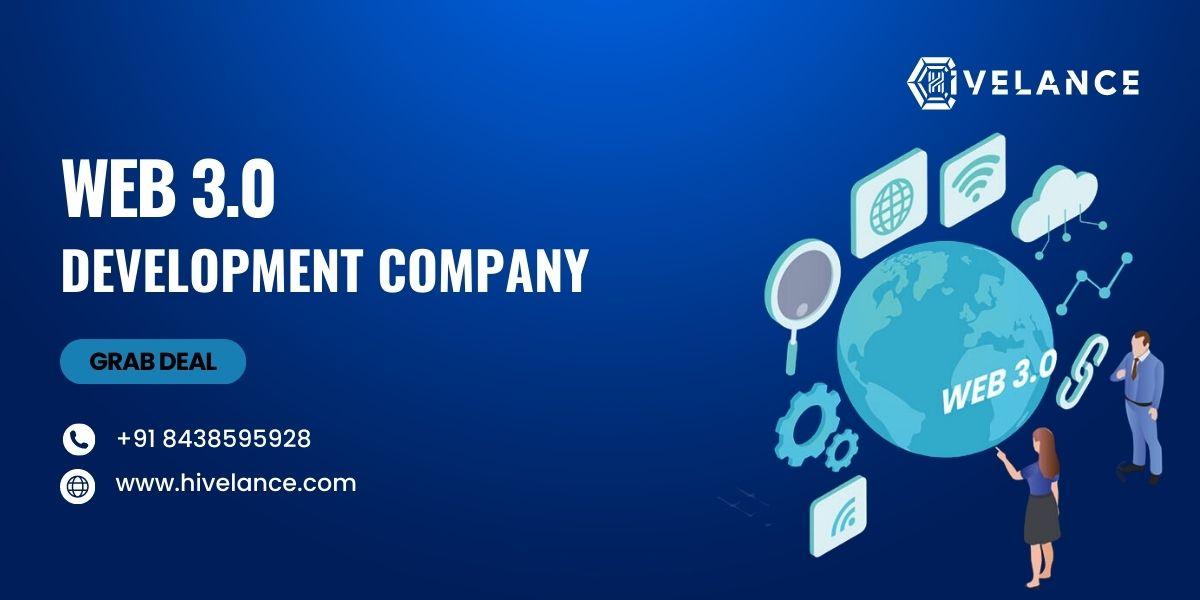How to Develop Your Applications on Web 3.0 Technology

In the ever-evolving realm of technology, the concept of "Web 3.0" has been gaining traction. Representing a leap beyond its predecessors, the development of Web 3.0 is reshaping our digital interactions. In this blog, we will explore the intricacies of Web 3.0 development, examining its key features and the myriad benefits it brings.
What is Web 3.0 Development?
Often labeled as Web 3.0 marks the next phase of internet evolution, striving to offer a more intelligent, interconnected, and user-centric online experience. Diverging from the focus of Web 2.0 on user-generated content and collaboration, Web 3.0 introduces technologies that enable data to be linked and comprehended by computers in a meaningful manner.
Key Features of Web 3.0 Development:
Decentralization:
Web 3.0 distinguishes itself through a commitment to decentralization, accomplished via blockchain and distributed ledger technologies. This ensures a distribution of control among diverse participants, mitigating single points of failure and bolstering security.
Interoperability:
The goal of Web 3.0 is to dismantle data and application silos, fostering interoperability. This facilitates seamless communication and data-sharing between different systems and platforms, fostering a more unified digital experience.
Semantic Understanding:
A defining feature of Web 3.0 is its capacity to comprehend the context and meaning of data. Techniques like linked data and ontologies empower the web to better understand relationships between disparate pieces of information.
AI and Machine Learning Integration:
Web 3.0 integrates Artificial Intelligence (AI) and Machine Learning (ML), allowing the web to learn from user behavior, deliver personalized experiences, and anticipate user needs.
Enhanced User Experience:
Web 3.0 prioritizes a user-centric experience, encompassing personalized content, tailored recommendations, and interfaces that adapt to individual preferences.
Benefits of Web 3.0 Development:
Improved Data Privacy and Security:
Web 3.0, rooted in decentralized systems and cryptographic technologies, heightens data privacy and security, granting users greater control over personal information.
Reduced Intermediaries:
Minimizing intermediaries in transactions and interactions, Web 3.0 reduces costs and accelerates processes, particularly in sectors like finance where blockchain-powered smart contracts are gaining prominence.
Enhanced Personalization:
Thanks to AI and ML, Web 3.0 delivers highly tailored experiences, aligning content recommendations, product suggestions, and services with individual preferences.
Empowerment of Content Creators:
Decentralized platforms and smart contracts empower content creators to directly monetize their work without relying on traditional intermediaries.
Open and Accessible Ecosystem:
Encouraging collaboration and innovation, Web 3.0 provides open-source protocols and standards, fostering an ecosystem where developers can build upon existing technologies.
Conclusion:
Web 3.0 development signifies a paradigm shift in our interaction with the internet. With its focus on decentralization, interoperability, and AI integration, Web 3.0 promises enhanced user experiences, improved privacy, and a more inclusive digital environment. Embracing the principles of Web 3.0 could redefine our interaction with technology and the internet.
Why Choose Hivelance for Web3.0 Development?
Hivelance stands as the premier Web3.0 development company, specializing in cutting-edge solutions for decentralized systems and blockchain-based apps. At the forefront of the Web3 revolution, our team fosters innovation, enabling users to embrace the benefits of decentralized technology. Proficient in automating processes with smart contracts, our team creates trustless interactions, implementing secure and customized smart contracts tailored to meet the specific requirements of Web3.0 for each client.
- Art
- Causes
- Crafts
- Dance
- Drinks
- Film
- Fitness
- Food
- Spellen
- Gardening
- Health
- Home
- Literature
- Music
- Networking
- Other
- Party
- Religion
- Shopping
- Sports
- Theater
- Wellness
- IT, Cloud, Software and Technology


